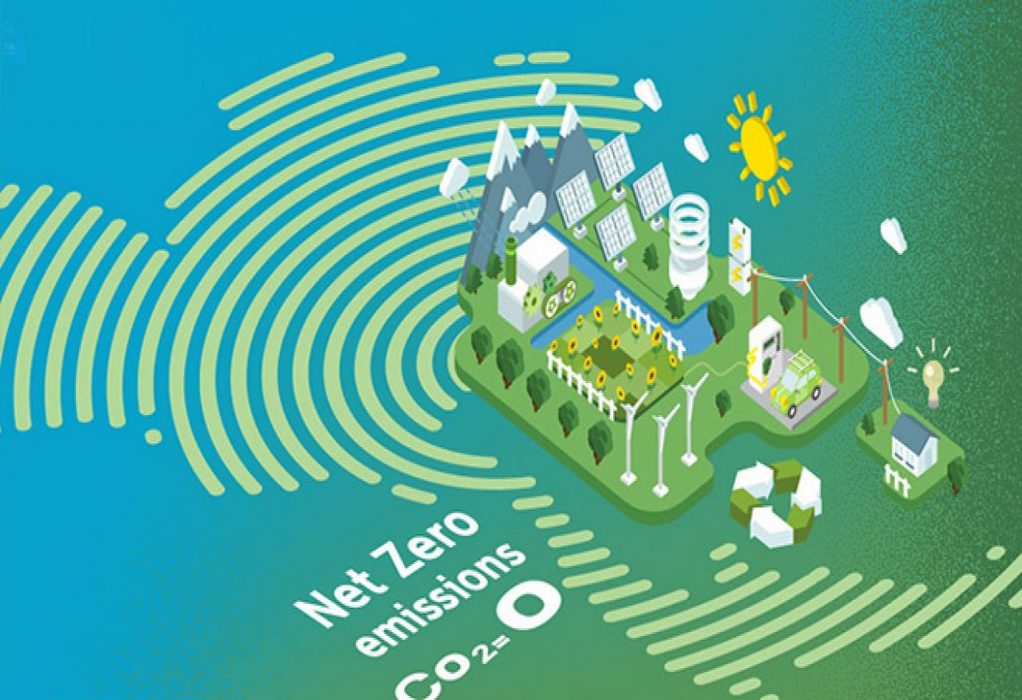From investments in improving operational sustainability through higher efficiency and responsible sourcing of materials to enhancing disclosures, top Indian companies are raising their sustainability quotient, but a lot more effort is needed to meet the net-zero targets set for the country.
Several Indian corporate houses have set decarbonisation targets internally to become carbon neutral by 2050 or before. These include Vedanta, Aditya Birla Group, JSW Group, Adani Transmission, Mahindra & Mahindra, and Dalmia Cement, among others. Reliance Industries, the most valuable company in India by market capitalisation, has set a target of net-zero by 2035.
Companies have also set internal carbon pricing, which is referred to when making all business decisions. For instance, Vedanta has set a carbon price of ₹1,125 per ton of CO2 emissions while Mahindra & Mahindra has set it at $10 (Rs 824).
Indian companies have increased investments in areas like renewable power, waste heat recovery systems, more efficient machinery, and renewable fuels to reduce their carbon footprint. For instance, JSW Steel is setting up a 175-megawatt waste heat recovery boiler this year. Meanwhile, Ultratech Cement added 121 megawatt of solar capacity and 42 megawatt of waste heat recovery system in FY22. Tata Steel is looking to have a million tonnes a year of steel recycling capacity through less carbon intensive electric arc furnaces in India by 2025.
Companies have also stepped-up scrutiny and handholding of their suppliers to ensure sustainable practices across their value chains, showed sustainability disclosures made by top companies.
As many as 100 companies voluntarily disclosed information for FY22 according to the Business Responsibility and Sustainability Reporting (BRSR) standards recommended by Indian markets regulator Sebi. BRSR will become mandatory for top 1,000 Indian companies from FY23.
As many as 100 companies voluntarily disclosed information for FY22 according to the Business Responsibility and Sustainability Reporting (BRSR) standards recommended by Indian markets regulator Sebi. BRSR will become mandatory for top 1,000 Indian companies from FY23.
As on date, about 100 Indian companies have committed to Science-Based Target Setting Initiative (SBTi), he said. More than 30 Indian companies have also submitted commitment to SBTi with regards to achieving net-zero emissions by 2050 or sooner.
SBTi is a collaborative initiative involving the CDP, the United Nations Global Compact, World Resources Institute and the Worldwide Fund for Nature and it provides target setting methods and guidance to companies on the environment sustainability front.
Over Rs 5,400 crore were spent in 2021 by top Indian corporates associated with SBTi to reduce about 5.5 million tonnes of carbon dioxide emissions, as per a CDP report.
The focus is particularly high on cement, iron and steel, refineries, non-ferrous metals and chemicals industries, as these sectors account for almost 70% of India’s total industrial emissions, as per a Crisil report.
For metals companies, adoption of green hydrogen as a source of energy is the pole star for their net-zero journey. While the technology to produce and consume green hydrogen at scale is still several years away, companies like Tata Steel, JSW, Vedanta and SAIL are already testing the viability of implementing new technologies by entering into technical tie-ups with other players in the industrial value chain.
The sustainability efforts of Indian corporations have been spurred in part due to the volume of global capital chasing environmentally responsible investments, experts said. For instance, Tata Motors last year raised $1 billion from TPG Rise Climate, which is a dedicated climate investment fund.
Companies are also keen to tap sustainability-linked loans (SLL) to fund their expansion plans to benefit from slightly lower interest rates that this debt comes with. Recently, JSW Cement, Birla Carbon and Glenmark Pharmaceuticals are some of the companies who have raised SLLs in India.
Tags: Adani Transmission, AdityaBirla Group, India Inc, JSW Group



Recent Posts
Greenlyte and MB Energy sign strategic e-methanol offtake agreement
CSDC and TECHNOLOG forge alliance to drive green, smart shipbuilding
DPA Kandla invites bids for India’s first port-based bio-methanol plant
Green & Digital Maritime Corridors Dialogue’ at JNPA sets stage for India Maritime Week 2025
Thermax partners with HydrogenPro for alkaline electrolyser systems in India
PIL Conducts First Simultaneous Cargo and LNG Bunkering in Singapore
NYK Takes Delivery of LNG-Fuelled Capesize Bulker SG Dawn
Swire Shipping joins Achilles Maritime Network to strengthen supply chain sustainability and compliance